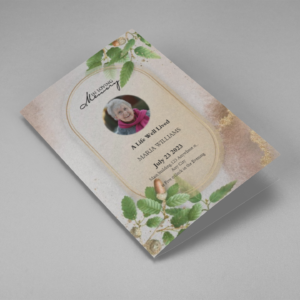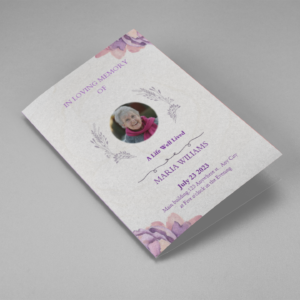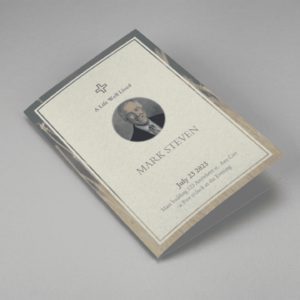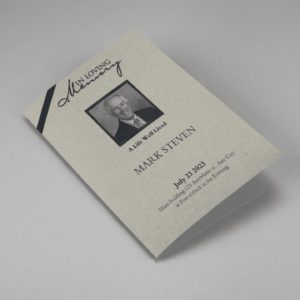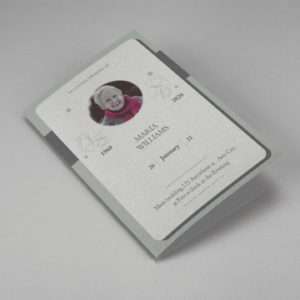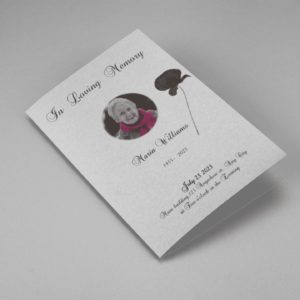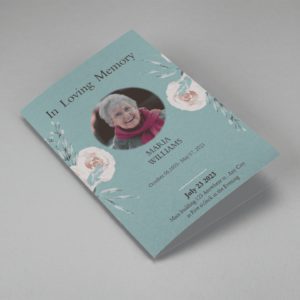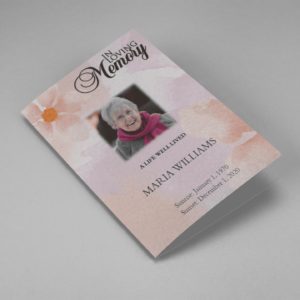Writing an obituary for a funeral program is an important way to honor and remember a loved one. An obituary provides a brief summary of the deceased’s life, highlighting their achievements, values, and the impact they had on others. By using example of obituary, families can create meaningful tributes that capture the essence of their loved one’s journey.
Why Are Examples of Obituaries Useful?
When writing an obituary, having Examples of writing an obituary can serve as a guide to ensure the content is structured, respectful, and heartfelt. These examples help families:
- Understand the standard structure of an obituary
- Include essential details such as birth and death dates, family members, and accomplishments
- Create a tone that matches the personality of the deceased
- Ensure clarity, consistency, and proper formatting
Essential Elements of an Obituary
A well-written obituary should include the following components:
1. Announcement of Passing
This section includes the full name, age, place of residence, and the date of passing. Example:
“Johnathan Robert Smith, 76, of Chicago, Illinois, passed away peacefully on June 1, 2024.”
2. Brief Biography
Provide a short overview of the deceased’s life, including significant milestones. Example:
“John was born on March 10, 1948, in Boston, Massachusetts. He graduated from Harvard University and had a successful career in law. He was passionate about community service and spent many years volunteering for local charities.”
3. Family Acknowledgment
Mention immediate family members, including spouse, children, and grandchildren. Example:
“He is survived by his wife, Linda Smith; his children, Michael and Sarah; and his grandchildren, Emily and James.”
4. Funeral Service Details
Provide information on the funeral or memorial service. Example:
“A celebration of John’s life will be held on June 10, 2024, at St. Patrick’s Church, 2 PM.”
5. Closing Message or Tribute
End with a heartfelt note or a request for donations in lieu of flowers. Example:
“John’s kindness and generosity will always be remembered. In lieu of flowers, donations may be made to the Chicago Community Fund.”
Different Styles of Obituaries
Depending on personal preferences, obituaries can be written in different styles:
Traditional Obituary Example
“Margaret Ann Thompson, 85, of Los Angeles, California, passed away peacefully on May 28, 2024. Born on August 5, 1938, Margaret dedicated her life to teaching and inspiring young minds. She taught at Roosevelt High School for 30 years and was known for her unwavering commitment to education. Margaret is survived by her three children and five grandchildren. A funeral service will be held on June 5, 2024, at St. Mary’s Church at 11 AM.”
Personalized Obituary Example
“The world lost a bright light on May 28, 2024, when James ‘Jim’ Parker left us at the age of 72. Jim was more than a father, husband, and friend—he was a storyteller, an adventurer, and a lover of all things nature. Whether hiking the Appalachian Trail or teaching his grandchildren how to fish, he brought joy to everyone around him. Jim’s life will be celebrated on June 5, 2024, at the Parker Family Home. Friends and family are welcome.”
Humorous Obituary Example
“Thomas ‘Tommy’ Johnson, 68, finally ran out of dad jokes on May 20, 2024. He leaves behind a family that adored his humor and will miss his legendary barbecues. Tommy believed in enjoying life to the fullest—he traveled, loved classic rock, and made the best ribs in Texas. His celebration of life will be held on June 3, 2024, at his favorite backyard spot. Friends and family, bring your stories and appetite.”
How to Use an Obituary in a Funeral Program
When creating a funeral program, an obituary serves as a focal point that helps attendees reflect on the life of the deceased. Here’s how to incorporate an obituary effectively:
- Front Page: Include a short version of the obituary along with a photo of the deceased.
- Inside Pages: Provide a detailed obituary, funeral service order, and special messages from loved ones.
- Back Page: List acknowledgments and a favorite quote, prayer, or Bible verse of the deceased.
Tips for Writing a Heartfelt Obituary
- Be authentic: Write in a tone that reflects the personality of the deceased.
- Keep it concise: Aim for 200-500 words, depending on the funeral program’s space.
- Proofread carefully: Ensure there are no spelling or factual errors.
- Seek input from family: Collaborate with relatives to ensure important details are included.
- Consider a theme: Whether faith-based, humorous, or poetic, choose a style that represents the deceased.
Writing an obituary for a funeral program is a meaningful way to pay tribute to a loved one. By using Examples of writing an obituary, families can create a heartfelt, well-structured message that honors their loved one’s memory. Whether traditional, personal, or humorous, an obituary provides comfort to those grieving and preserves the legacy of the deceased for years to come.
Funeral Obituary Templates
-
Searching for a Oak Leaf With Gold Oval Frame Half Page Funeral Program that is easy to print and amass and has a cutting-edge look? The Oak Leaf With Gold Oval Frame Half Page Funeral Program is the Perfect decision because it measures 8.5”x 5.5”.
- No Limitation on Content, Edit anything
- Edit anytime – unlimited revisions even after purchased
- Get a printable PDF downloaded to get it printed on your own.
-
Searching for a Brown and White Classic Funeral Program Half Page Program that is easy to print and amass and has a cutting-edge look? The Brown and White Classic Funeral Program Half Page Program is the Perfect decision because it measures 8.5”x 5.5”.
- No Limitation on Content, Edit anything
- Edit anytime – unlimited revisions even after purchased
- Get a printable PDF downloaded to get it printed on your own.
-
Searching for a Purple Elegant Watercolor Half Page Funeral Program Template that is easy to print and amass and has a cutting-edge look? The Purple Elegant Watercolor Half Page Funeral Program Template is the Perfect decision because it measures 8.5”x 5.5”.
- No Limitation on Content, Edit anything
- Edit anytime – unlimited revisions even after purchased
- Get a printable PDF downloaded to get it printed on your own.
-
Searching for a Cream and Green Photo Obituary Half Page Program that is easy to print and amass and has a cutting-edge look? The Cream and Green Photo Obituary Half Page Program is the Perfect decision because it measures 8.5”x 5.5”.
- No Limitation on Content, Edit anything
- Edit anytime – unlimited revisions even after purchased
- Get a printable PDF downloaded to get it printed on your own.
-
Searching for a Cream Simple Elegant Photo Church Half Page Program that is easy to print and amass and has a cutting-edge look? The Cream Simple Elegant Photo Church Half Page Program is the Perfect decision because it measures 8.5”x 5.5”.
- No Limitation on Content, Edit anything
- Edit anytime – unlimited revisions even after purchased
- Get a printable PDF downloaded to get it printed on your own.
-
Searching for a Samovar Silver Half Page Funeral Program Template that is easy to print and amass and has a cutting-edge look? The Samovar Silver Half Page Funeral Program Template is the Perfect decision because it measures 8.5”x 5.5”.
- No Limitation on Content, Edit anything
- Edit anytime – unlimited revisions even after purchased
- Get a printable PDF downloaded to get it printed on your own.
-
Searching for an Elegant Beige Half Page Funeral Program Template that is easy to print and amass and has a cutting-edge look? The Elegant Beige Half-Page Funeral Program Template is the Perfect decision because it measures 8.5”x 5.5”.
- No Limitation on Content, Edit anything
- Edit anytime – unlimited revisions even after purchased
- Get a printable PDF downloaded to get it printed on your own.
-
Searching for a White Floral Pro Half Page Funeral Program Template that is easy to print and amass and has a cutting-edge look? White Floral Pro Half Page Funeral Program Template is the Perfect decision because it measures 8.5”x 5.5”.
- No Limitation on Content, Edit anything
- Edit anytime – unlimited revisions even after purchased
- Get a printable PDF downloaded to get it printed on your own.
-
Searching for a Grey and Burgundy Elegant Half Page Funeral Program Template that is easy to print and amass and has a cutting-edge look? Grey and Burgundy Elegant Half Page Funeral Program Template is the Perfect decision because it measures 8.5”x 5.5”.
- No Limitation on Content, Edit anything
- Edit anytime – unlimited revisions even after purchased
- Get a printable PDF downloaded to get it printed on your own.
-
Searching for a Soft Green and Grey Minimalist Floral Half Page Funeral Program Template that is easy to print and amass and has a cutting-edge look? Soft Green and Grey Minimalist Floral Half Page Funeral Program Template is the Perfect decision because it measures 8.5”x 5.5”.
- No Limitation on Content, Edit anything
- Edit anytime – unlimited revisions even after purchased
- Get a printable PDF downloaded to get it printed on your own.
-
Searching for a Gray Elegant Oval Frame Half Page Funeral Program Template that is easy to print and amass and has a cutting-edge look? Gray Elegant Oval Frame Half Page Funeral Program Template is the Perfect decision because it measures 8.5”x 5.5”.
- No Limitation on Content, Edit anything
- Edit anytime – unlimited revisions even after purchased
- Get a printable PDF downloaded to get it printed on your own.
-
Searching for a Blue Organic Minimal Half Page Funeral Program Template that is easy to print and amass and has a cutting-edge look? Blue Organic Minimal Half Page Funeral Program Template is the Perfect decision because it measures 8.5”x 5.5”.
- No Limitation on Content, Edit anything
- Edit anytime – unlimited revisions even after purchased
- Get a printable PDF downloaded to get it printed on your own.
-
Searching for a Pink and Orange Watercolour Half Page Funeral Program Template that is easy to print and amass and has a cutting-edge look? Pink and Orange Watercolour Half Page Funeral Program Template is the Perfect decision because it measures 8.5”x 5.5”.
- No Limitation on Content, Edit anything
- Edit anytime – unlimited revisions even after purchased
- Get a printable PDF downloaded to get it printed on your own.
-
Searching for a Pink Floral Paper Half Page Funeral Program Template that is easy to print and amass and has a cutting-edge look? Pink Floral Paper Half Page Funeral Program Template is the Perfect decision because it measures 8.5”x 5.5”.
- No Limitation on Content, Edit anything
- Edit anytime – unlimited revisions even after purchased
- Get a printable PDF downloaded to get it printed on your own.
Funeral Program : Helping Videos
Frequently Asked Question On Examples Of Writing A Obituary
What should be included in an obituary for a funeral program?
An obituary should include the deceased’s full name, age, birth and death dates, a brief biography, surviving family members, funeral service details, and a closing message or tribute.
How long should an obituary be?
An obituary for a funeral program is typically between 200-500 words, depending on the available space and level of detail.
Can I personalize an obituary?
Yes, you can personalize an obituary by adding heartfelt messages, favorite quotes, humorous anecdotes, or details about the deceased’s passions and personality.
What are the different styles of obituaries?
Obituaries can be traditional, personalized, or even humorous, depending on the personality of the deceased and the family’s preferences.
Where should the obituary be placed in a funeral program?
A short version can go on the front page, while the full obituary can be placed inside along with the order of service and acknowledgments.


